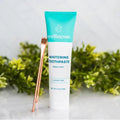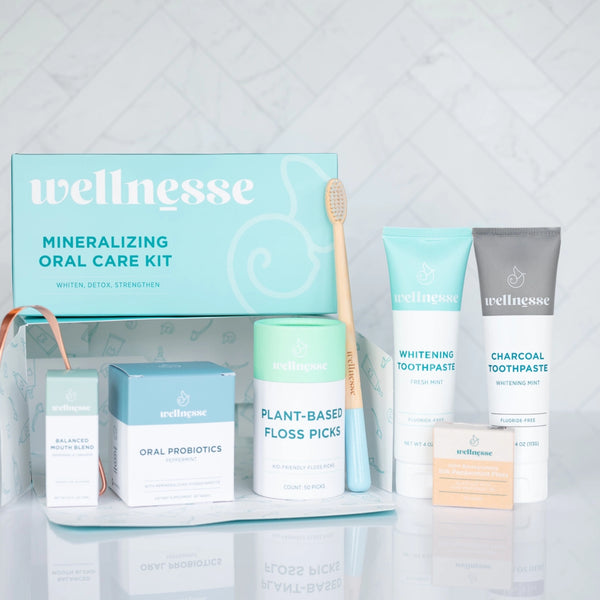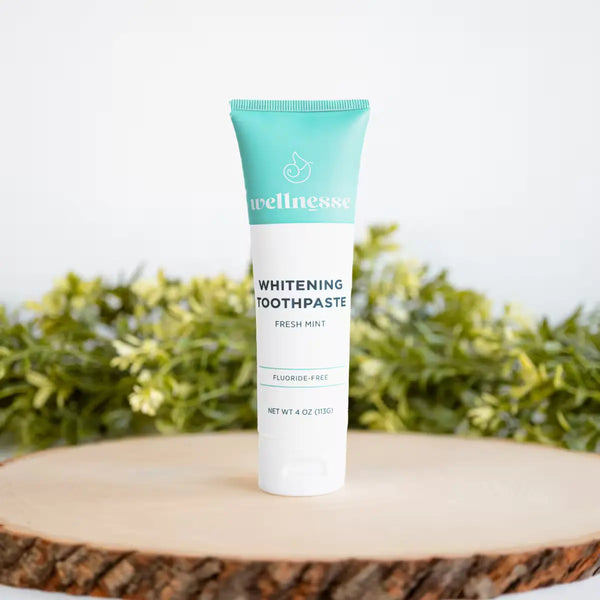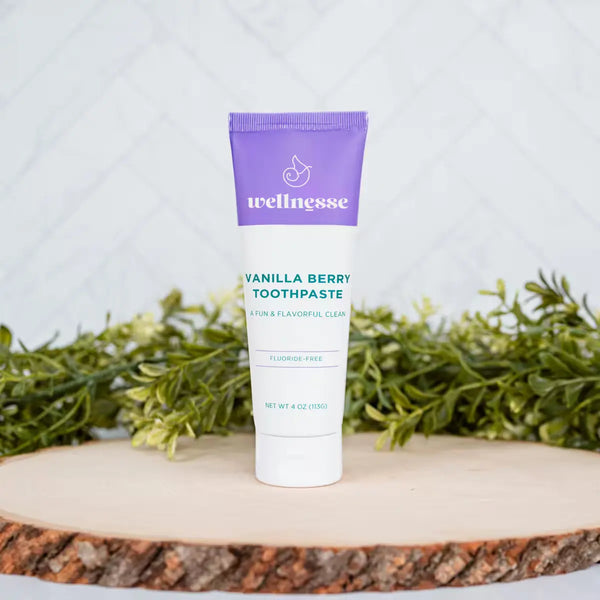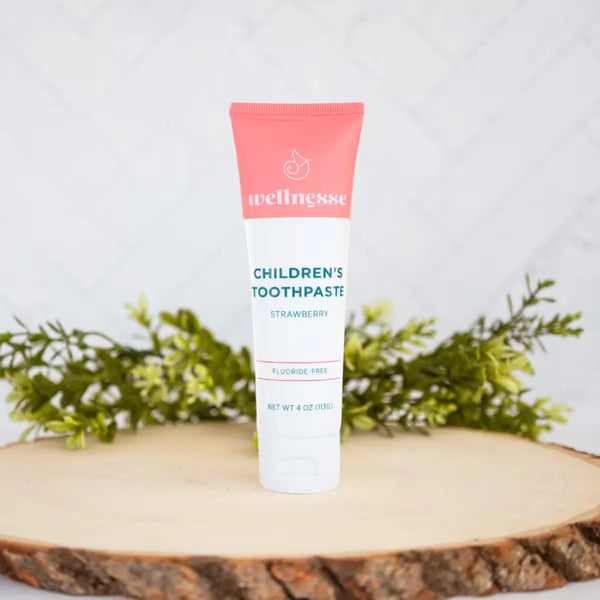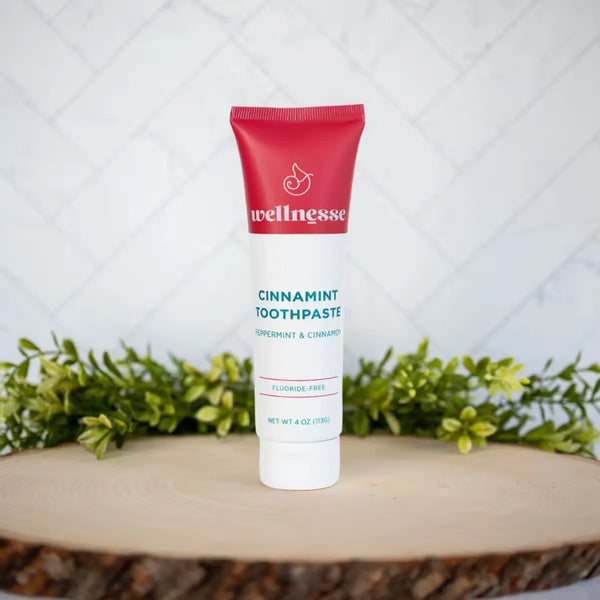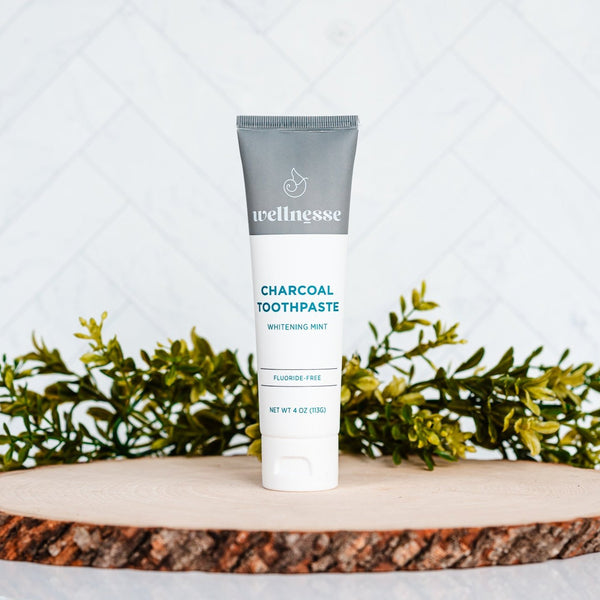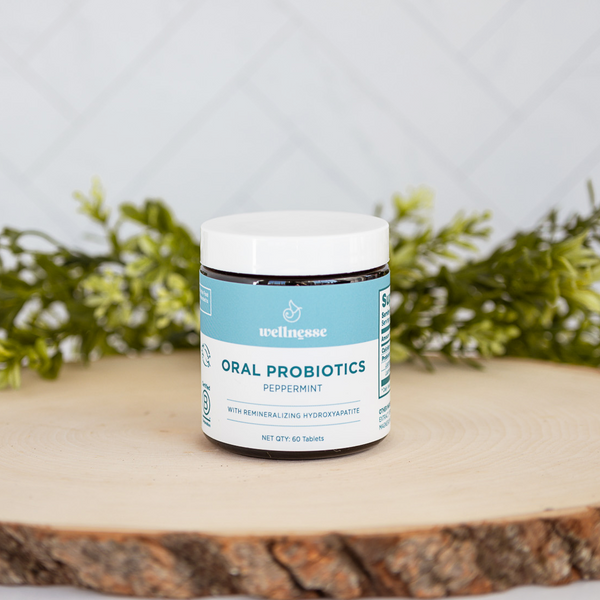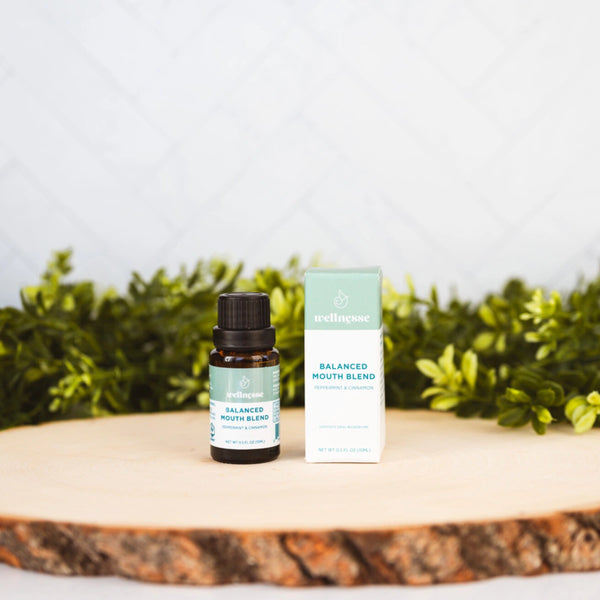Maintaining oral hygiene is essential for overall wellness, and many people are seeking out natural oral health remedies as alternatives to conventional products. From concerns about certain chemicals to a preference for gentler, plant-based oral care, there’s a clear trend toward toothpaste and mouthwash formulas that avoid additives like fluoride and sodium lauryl sulfate (SLS). Consumers increasingly look for SLS and fluoride-free toothpaste options to steer clear of harsh detergents or excessive fluoride. Conventional toothpastes often contain ingredients such as SLS foaming agents, artificial sweeteners, and even triclosan. The desire for toothpaste without fluoride or SLS reflects a growing interest in safer, more natural oral care solutions.
Why Choose Natural Ingredients for Oral Care?
A major reason is to avoid potential irritants or health risks associated with some common toothpaste components. For example, fluoride is widely acknowledged for preventing cavities, but some individuals prefer a fluoride-free toothpaste due to concerns about overexposure or personal health philosophies. Similarly, SLS can cause mouth irritation or canker sores in certain sensitive individuals. Choosing products free of these substances can be gentler on the mouth.
Another motivation is the holistic and eco-friendly aspect. Natural oral care products often use botanically derived ingredients and forgo artificial colors, flavors, and preservatives. This means a simpler ingredient list that’s easy to recognize, which appeals to those seeking transparency about what they put in their bodies. Natural products tend to come in sustainable packaging and are cruelty-free. There’s the factor of efficacy. Modern natural oral care is also about what’s put in. Companies now include innovative alternatives and natural oral health remedies that actively support teeth and gums. For instance, Wellnesse offers a remineralizing fluoride-free toothpaste that uses hydroxyapatite instead of fluoride to strengthen enamel. By incorporating scientifically backed natural ingredients, such formulations aim to deliver results comparable to traditional products, but in a more natural way.

Xylitol: A Sweet Defense Against Cavities
One of the most potent natural ingredients for oral health is xylitol, a sugar alcohol used as a sweetener in chewing gums, mints, and toothpaste. Unlike regular sugar, xylitol cannot be metabolized by the harmful bacteria in your mouth. Cavity-causing bacteria feed on sugars to produce acid that erodes tooth enamel. Xylitol confounds this process. It tastes sweet but starves the microbes of usable fuel. This unique property gives xylitol a place among the top xylitol dental benefits: it helps reduce plaque formation and tooth decay. The American Dental Association acknowledges xylitol’s cavity-fighting advantages; studies show that xylitol reduces plaque, is antimicrobial, and lowers the acid that attacks tooth enamel. By curbing bacterial growth and balancing oral pH, xylitol can reduce the risk of cavities over time.
Beyond cavity prevention, xylitol adds pleasant sweetness to oral care products without the downside of feeding bacteria or causing sugar spikes. Many natural toothpaste brands use xylitol instead of artificial sweeteners. It’s also popular in sugar-free gum. Chewing xylitol gum after meals stimulates saliva while delivering xylitol’s antimicrobial effect. A few grams of xylitol per day, divided across exposures, can be effective in reducing cavity risk. However, it’s worth noting that xylitol should be kept away from pets.
Neem and Clove: Herbal Antimicrobials for Healthy Gums
Herbal medicine has long played a role in dental care, and neem for oral health is a prime example from Ayurvedic tradition. Neem contains potent antimicrobial compounds. In traditional use, chewing neem sticks or using neem leaf extract helps clean teeth and fight germs. Modern herbal toothpastes often include neem for its plaque-fighting and anti-inflammatory properties. One clinical trial found that a neem-based mouthwash was as effective as a standard chlorhexidine medicated mouthwash in reducing plaque and gingivitis. This suggests neem could serve as a natural alternative to harsh germicidal rinses, helping to control bacteria and swelling in the gums.
Clove is another herbal powerhouse for oral care. Clove oil (rich in eugenol) has natural analgesic and antiseptic qualities. It has historically been used to soothe toothaches and freshen breath. In fact, many herbal toothpaste recipes for gum health include clove along with neem. These botanicals work in tandem: neem reduces bacterial buildup that causes plaque, while clove can reduce gum pain or sensitivity thanks to its mild numbing effect. One study reported that toothpaste formulas containing herbal ingredients like neem and clove demonstrated antimicrobial activity comparable to commercial toothpaste. A well-formulated natural paste with such herbs can fight the bacteria that cause dental plaque as effectively as a regular toothpaste.
Aside from neem and clove, several other plant extracts support oral hygiene. Essential oils for teeth are common in natural oral care. For example, tea tree oil from the Melaleuca plant is included for its antiseptic properties, and peppermint or spearmint oils provide a fresh flavor along with antibacterial action. These oils can inhibit the growth of bacteria that cause bad breath and gum problems. Similarly, herbal extracts like sage, myrrh, or echinacea are sometimes added to natural toothpastes or mouthwashes to soothe gums and contribute antibacterial or anti-inflammatory effects. Aloe vera is another gentle ingredient often found in natural oral care products; it helps toothpaste for sensitive teeth by calming gum irritation and aiding healing.
Coconut Oil Pulling: An Ancient Practice for Modern Oral Care
For centuries, oil pulling has been a cornerstone of holistic oral care. Today, coconut oil stands out as an effective and accessible oil for this ancient practice.
- The Process and Purpose of Oil Pulling: The practice of oil pulling is rooted in the Ayurvedic tradition, where it was originally known as kavala graha or gandusha, a ritual intended to cleanse not just the mouth but also the entire body through the concept of systemic detoxification. In modern interpretation, oil pulling has evolved into a scientifically examined oral hygiene method, particularly using coconut oil for its superior antimicrobial profile. The technique involves placing roughly a tablespoon of oil in the mouth and swishing it gently yet consistently for 10 to 20 minutes. During this time, the oil emulsifies as it mixes with saliva, forming a thinner liquid that can reach crevices between teeth and around the gums, where traditional brushing may not reach. This extended contact allows the oil to bind to the lipid membranes of harmful microorganisms, including Streptococcus mutans, a leading cause of tooth decay. As the oil captures bacteria, toxins, and food particles, it helps detach biofilm from enamel surfaces. The process also mechanically stimulates the oral muscles and salivary glands, enhancing the natural cleansing action of saliva, which is rich in enzymes that neutralize acids and protect against demineralization.
- Lauric Acid: The natural power of coconut oil for teeth lies in lauric acid, which is a fatty acid with proven antibacterial, antifungal, and antiviral effects. Lauric acid binds to harmful microbes, breaking down their membranes and reducing their ability to thrive in the mouth. This action not only curbs plaque formation but also minimizes gum inflammation. Unlike chemical-based mouth rinses, coconut oil achieves this through a gentle, non-irritating process that aligns with the body’s natural balance.
- How to Safely Incorporate It into Your Routine: To try oil pulling, start with a spoonful of virgin coconut oil and gently swish it around your mouth. Avoid swallowing the used oil since it contains extracted bacteria and toxins. After spitting it into a trash bin, rinse your mouth with water before brushing as usual. Practiced several times a week, this natural oral health remedy complements regular brushing and flossing, adding an extra layer of defense against plaque and bad breath.
This timeless ritual bridges ancient wisdom and modern science, proving that sometimes, the simplest methods deliver the strongest results.

Hydroxyapatite: A Fluoride-Free Mineral for Strong Teeth
The use of hydroxyapatite, a mineral compound that offers a way to remineralize and protect teeth without fluoride, is one of the most exciting advancements in natural oral care. Hydroxyapatite (HAP) is actually the substance that makes up most of our tooth enamel and bone – essentially a form of calcium phosphate. In toothpaste form, hydroxyapatite is typically in the form of nano- or micro-sized particles that can bond to the tooth surface. When you brush with a hydroxyapatite toothpaste, you’re effectively filling in tiny cracks and rebuilding weakened enamel with the same mineral teeth are made of. This makes HAP-based pastes highly effective at strengthening teeth and even reducing sensitivity.
For those seeking the best non-fluoride toothpaste, hydroxyapatite is a key ingredient to look for. It’s been used for decades in Japan and Europe, and now more brands in North America are formulating toothpastes with hydroxyapatite as a fluoride substitute. Because hydroxyapatite physically rebuilds the tooth’s mineral structure, it’s also very helpful for people with sensitive teeth. If you have sensitivity to cold or sweet foods due to enamel erosion, a toothpaste for sensitive teeth containing hydroxyapatite can help alleviate that sensitivity by sealing the exposed dentin. Another advantage is safety: since hydroxyapatite is the same material as our teeth, it’s biocompatible and non-toxic even if accidentally swallowed, making it safe for children and adults alike. Unlike fluoride, there’s no risk of fluorosis or other systemic issues. Hydroxyapatite is a standout fluoride-free toothpaste ingredient that strengthens teeth naturally. It allows those who prefer toothpaste without fluoride to still protect against cavities effectively. When shopping for natural toothpaste, you’ll often see nano-hydroxyapatite on the label of high-quality formulas.
Baking Soda and Charcoal: Natural Whitening Agents
Natural ingredients can offer gentle whitening by removing surface stains and polishing the teeth. Two popular options are baking soda and activated charcoal, both of which you’ll find in various non-fluoride toothpaste products.
- Baking Soda (Sodium Bicarbonate) – Baking soda is a mild abrasive that can effectively scrub away surface stains from coffee, tea, or smoking. It also has a basic (alkaline) pH, which helps neutralize acids in the mouth that can erode enamel. By reducing acidity, baking soda protects teeth from demineralization while it cleans. Many natural whitening toothpastes include baking soda as a primary ingredient, and you can even dip a damp toothbrush in plain baking soda for a simple at-home whitening scrub. Because it is softer than tooth enamel, baking soda can polish without excessive wear, but only if used correctly.
- Activated Charcoal – Charcoal has become a trendy natural teeth whitener in recent years. Activated charcoal is a form of carbon processed to have lots of tiny pores, which can absorb pigments and impurities. In a toothpaste or powder form, charcoal can bind stain molecules on the teeth, potentially lifting discolorations from the surface. It also has an anti-bacterial effect that can help with bad breath.
It’s worth noting that fluoride-free whitening toothpaste formulas often combine baking soda, charcoal, or clay with other natural polishing agents like calcium carbonate or silica. Some even include fruit enzymes to help break down organic stains gently. These can all contribute to a brighter smile without the use of chemical bleaches.
As we’ve seen, there are many beneficial natural ingredients that can support oral health: from xylitol’s cavity-fighting sweetness to neem and clove’s herbal protection for gums; from coconut oil’s bacteria-cleansing pull to hydroxyapatite’s enamel-rebuilding power. Using these ingredients, it’s entirely possible to craft an oral hygiene routine that is both natural and effective. You now know several key substances to look for when choosing natural products or even making your own DIY solutions. With this knowledge, you have more options than ever in how to improve oral health naturally. Remember to apply basic dental care tips: brush at least twice a day with proper technique, floss daily to clean between teeth, and get regular dental checkups for professional cleanings and guidance. Diet matters too. Limiting sugary snacks and acidic drinks will complement the benefits of any natural ingredient by reducing the fuel for bacteria and acid attacks on your teeth.

The best strategy for a healthy mouth is one that combines proven dental care practices with the smart use of natural aids. By choosing products with the natural ingredients discussed – or even incorporating simple habits like oil pulling, you can improve your oral health while avoiding unnecessary chemicals. It’s about finding the right balance that fits your values and needs. With nature’s help and a bit of mindfulness, you can keep your smile strong, bright, and truly well.
Sources
-
Blende Dental Group – Exploring Natural Oral Hygiene Products blendedentalgroup.com
-
Emergency Dental of Omaha – 5 Benefits to Using Plant-Based Toothpaste emergencydentalofomaha.com
-
Pure Periodontics (London) – Can Coconut Oil Pulling Help Patients with Periodontal Disease? pureperio.com
-
AZ Dental Club – Is Hydroxyapatite Toothpaste Better Than Fluoride? A Comprehensive Comparison azdentalclub.com
-
Harvard Health Publishing – Is Charcoal Toothpaste Safe for My Teeth? health.harvard.edu
